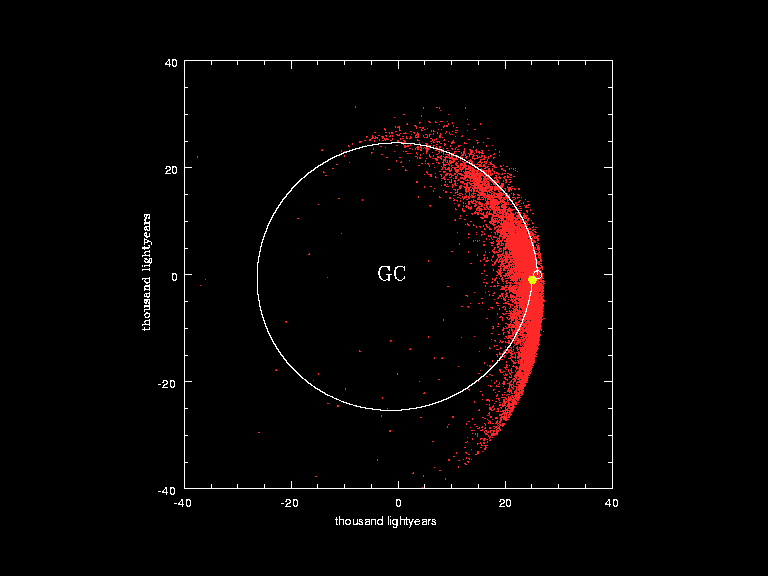I can think of another instance in which a piece of fruit had cosmological significance, but this time we’ll focus on Newton’s apple:
Now, when Isaac Newton observed a certain relationship between and likeness between the behavior of the falling apple and that of the circling planets, it might be said with equal plausibility either that he argued by analogy from the apple to a theory of astronomy, or that while evolving a theory of astronomical mathematics he suddenly perceived its application to the apple. But it would scarcely be exact to say that, in the former case, he absurdly supposed the planets to be but apples of a larger growth, with seeds in them; or that, in the latter case, he had spun out a purely abstract piece of isolated cerebration that, oddly enough, turned out to be true about apples, though the movements of the planets themselves had no existence outside Newton’s mathematics. Newton, being a rational man, concluded that the two kinds of behavior resembled each other – not because the planets had copied the apples or the apples copied the planets, but because both were examples of the working of one and the same principle.
-Dorothy Sayers, The Whimsical Christian, pp. 124-125
Doesn’t it seem like this story could have come out of a fairy tale? This is one of the reasons I am glad I was encouraged to read Polanyi: he reminds us that science and imagination cannot be, and therefore are never, separated. Newton’s articulation of the law of gravity was a massive act of the imagination which saw an explanation of the workings of the cosmos in a falling apple.
It almost sounds as if he were a poet. Keats heard a nightingale and thought of ‘Charm’d magic casements, opening on the foam Of perilous seas, in faery lands forlorn.’ Newton saw a falling apple and thought of the workings of the galaxy. Chesterton’s idea that everything is poetic really isn’t that far fetched.
The story also reminds us of the importance of analogies. As a preacher it reminds me that analogies are important for engaging the imagination, which in turn can lead to a better grasp of the truth. Call it a reminder of the need for ‘whimsical’ preaching.


